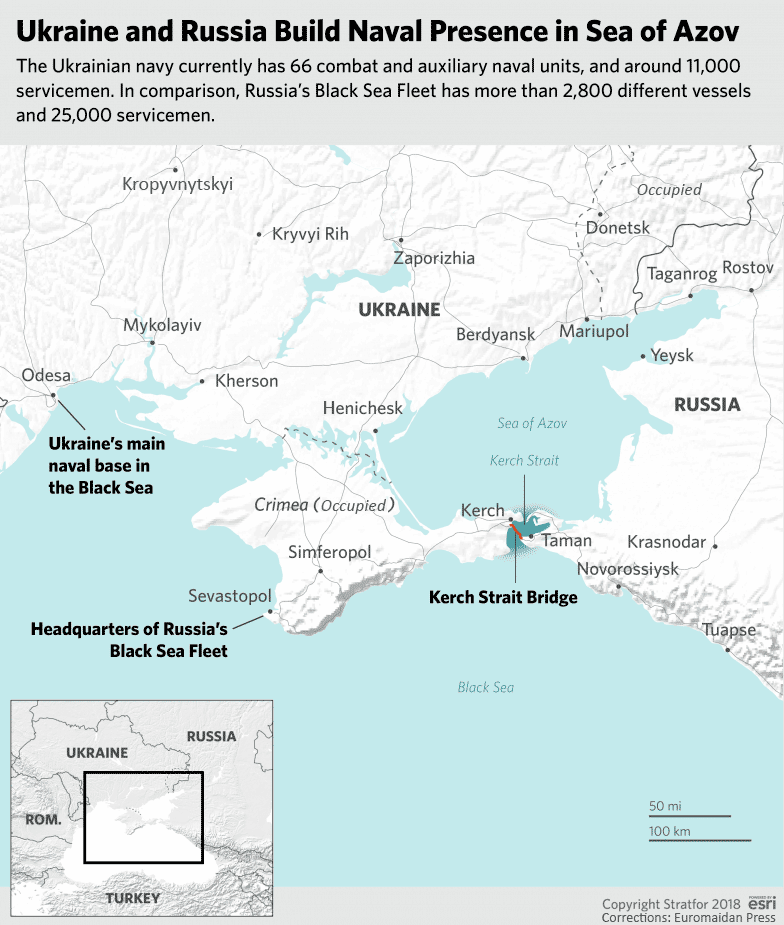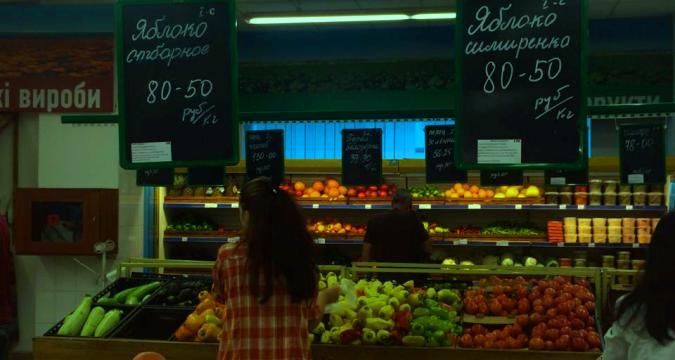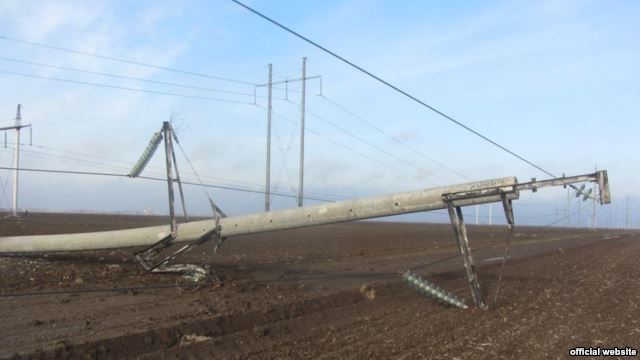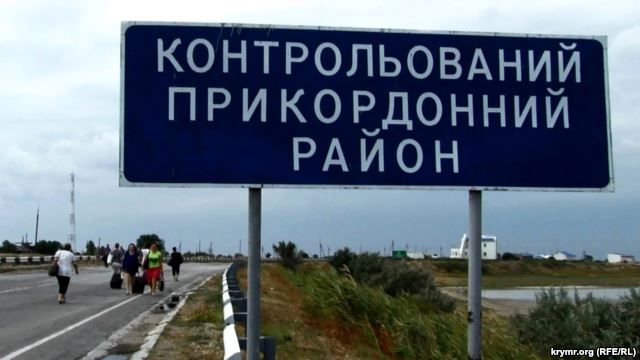By blocking water transit on the Sea of Azov and in the Kerch Straits, Moscow is pursuing two goals, Mykhailo Samus says. First of all, it hopes Ukraine will recognize the Russian annexation of Crimea; and second, it hopes to force Ukraine to lessen its blockade of Crimea and thereby reduce the burden on Moscow of supplying the peninsula.
Moscow is unlikely to achieve the first; but in pursuing the second, the deputy director of Kyiv’s Center for Army, Conversion and Disarmament Studies
suggests, it may be creating the basis for a kind of mini-deal some in the West might try to force Kyiv to accept.
According to Samus,
At present, no such deal seems possible; but Ukraine is entering into an election season and Moscow can be expected to turn up the pressure in the hopes of creating divisions within Ukrainian society that the Russians can exploit, the Kyiv analyst continues, especially as Russia’s partial blockade has already imposed severe hardship on the Azov Sea port cities.
If these economic tools do not bring Kyiv to the negotiating table, Samus says, Russia could consider using force, either direct or hybrid. But he says that despite the alarmist predictions of some, he believes that such use of force is improbable at least at present, given the size of the Ukrainian forces in the region and the certainty of more sanctions.
But because this economic pressure could have such serious consequences, Samus calls for the immediate convoying of ships into the Sea of Azov to Ukrainian ports and the denunciation of the Ukrainian-Russian agreement on the sea
which effectively prevents Kyiv from seeking the support of NATO navies.
Further Reading:
- Ukrainian warships break Russian de-facto blockade in Azov Sea to create naval base
- Clarity on Caspian has given Russia the opportunity to control Sea of Azov
- Kyiv must denounce 2004 Azov Sea accord with Russia now, Ohryzko says
- What caused the environmental disaster in occupied Crimea? A chemist explains
- Crimea’s growing water problem might provoke new Russian attack against Ukraine
- Occupied Crimea is running out of water
- Moscow boosting tensions in Sea of Azov but can’t change strategic situation there
- Moscow seeking to provoke revolts in Ukraine’s Azov Sea ports
- Ukraine has law but not force on its side in Sea of Azov
- How Putin’s Crimean bridge grew over 2016-2017 – satellite images
- Scandal as Dutch companies help build bridge to occupied Crimea
- How much will Crimea cost Russians?
- Russia positioning to attack Ukraine from Sea of Azov






